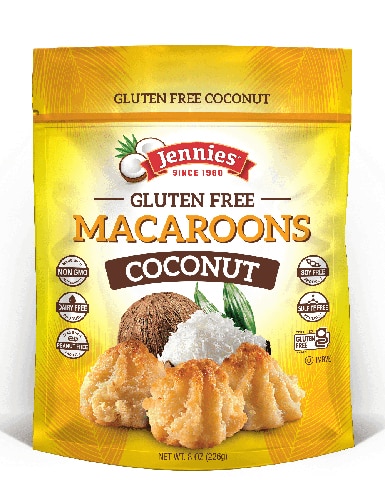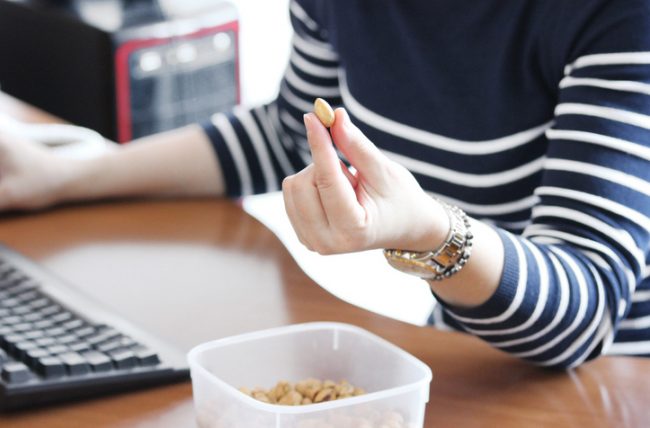We’ve become a nation of champions—snacking champions, that is. Our children are trained to expect snacks at every juncture; when they get home from school, in the car, before dinner and after dinner. As adults we are no better. We grab a bar that passes for breakfast, eating on the run more frequently than sitting down to eat.
And while most of us know that the usual snack suspects, such as soda, candy and cookies are less than ideal, we sometimes trick ourselves into thinking some snacks are not so bad. Big mistake, as these healthier choices can do just as much harm. Some snack foods manufacturers try to mask the nutritional deficiencies of their product under a hyped-up health halo, but we were not swayed.
We assume that like us, you’d rather be informed than delusional. So here are five nutritional nightmares—and how to snack smarter instead.
1. Crackers
Claim to shame: Low in fiber, high in sodium, crackers don’t give you the energy boost you need as you hit your afternoon slump—nor do they leave you satisfied.
Healthy upgrade: Choose whole-grain, high-fiber crackers, and then top them with a nut butter, cheese, or hummus for a hit of protein to stave off hunger.
2. Chips
Claim to shame: Most chips are high in sodium and trans fats and have basically no fiber. A 1-oz serving of chips can range from 150 mg for plain potato chips to over 200 mg for nacho or barbecue-flavored chips. And because they are so processed, it’s easy to eat way too many.
Healthy upgrade: Surprisingly, not all chips are created equal. Look for chips made of whole grains, such as Way Better Snacks; chips with a lower sodium count, such as Terra chips, or chips that have protein and fiber, such as Beanitos.
3. Granola and cereal bars
Claim to shame: Many bars are basically candy bars in disguise, made with cheap, low-quality ingredients and full of additives that can cause digestive distress and prevent the absorption of important nutrients. These sugar and carbohydrate bombs have no redeeming qualities to recommend them. Plus, most people abuse granola bars by eating too many—and still find themselves hungry within an hour.
Healthy upgrade: Choose bars made with clean, whole-food, plant-based ingredients, with lots of protein and fiber to balance out the sugar. Top pics: Health Warrior Dark Chocolate Coconut Sea Salt Protein Bar, Oatmega bars and Quest bars all have high fiber and protein content while remaining relatively low-sugar.
4. Microwave popcorn
Claim to shame: By now have heard about popcorn lung, caused by inhaling diacetyl, a synthetic butter flavoring added to the popcorn. Another problem is PFOA, a chemical that lines the bag that contains carcinogenic chemicals similar to Teflon.
Healthy upgrade: Despite its tarnished reputation, microwave popcorn is still one of the most irresistible office snacks known to man. But you can have your popcorn and eat it too. Popcorn, especially GMO-free is actually a great snack, full of fiber and low in sugar. Dr. Oz suggests this hack: “Put organic kernels in a brown paper bag and lay it flat in the microwave. After a few minutes, you'll have the exact same product without all the dangerous chemicals.” Some brands, such as Quinn, have also started created microwave popcorn bags that are chemical and plastic-free. There are also pre-made popcorn brands that keep ingredients to a minimum and don’t over salt or over sugar. Check out SkinnyPop, Simple Truth and Sage Valley when the popcorn craving hits.
5. Flavored yogurt
Claim to shame: The majority of yogurt people eat is flavored, which means full of sugar and/or artificial sweeteners. A four-ounce container of yogurt can have a sky-high sugar content—the equivalents of several teaspoons of sugar. Sugar and sugar substitutes feed the bad bacteria in the gut, negating the benefits of the probiotics.
Healthy upgrade: You can still say yes to yogurt, as long as it’s the plain (protein- and probiotic-packed) version. Choose unflavored yogurt and mix in fresh fruit, unsweetened coconut or cinnamon.




